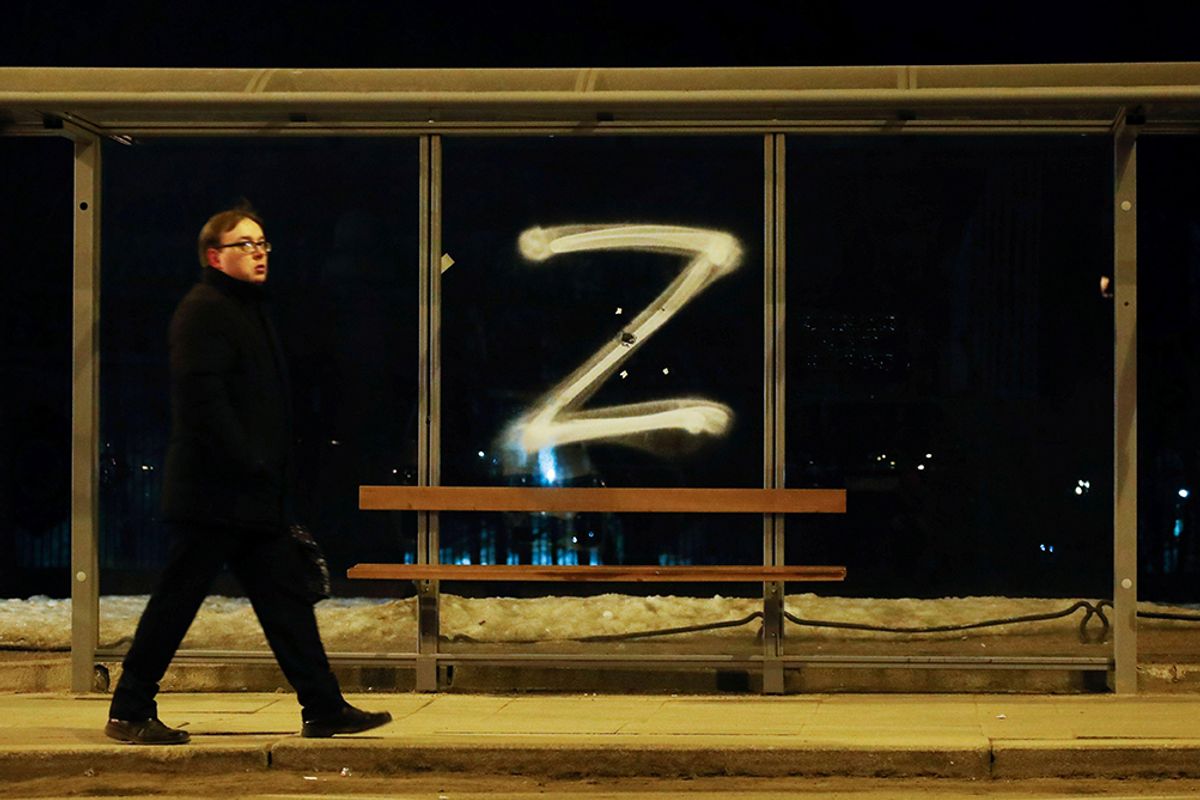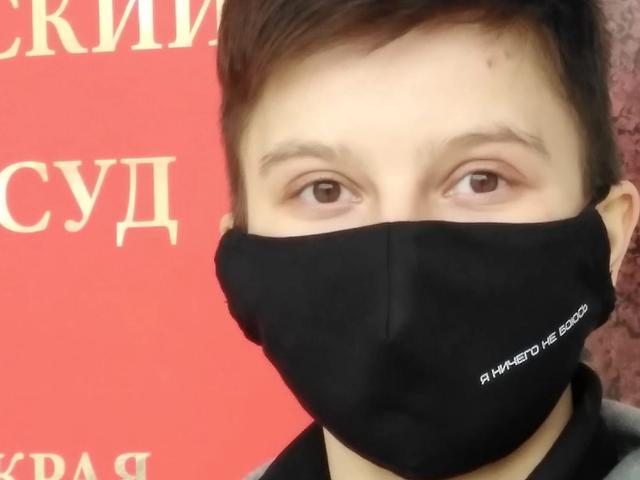Pussy Riot member Rita Flores, who left Russia last year after multiple arrests, had the Latin letter "Z" prefacing the phrase “we will end this war” sprayed on her Moscow apartment door on 5 March.
"Z", a symbol that mysteriously first appeared on Russian tanks as they surrounded Ukraine, has become the graphic rallying point of the invasion and is being widely compared with the Nazi swastika—even as Russia accuses Ukraine of being a "nest of neo-Nazis".
The phrase on Flores’s door is a reference to Russian President Vladimir Putin’s justification for what he is calling a “special operation” to “denazify” Ukraine and save eastern Ukraine from eight years of war.
A "Z" was also spray-painted on the door of the film critic Anton Dolin, who announced in a Facebook post on 6 March that he had fled with his family to Latvia because of “the criminal war in Ukraine”. He said he was unable to continue living “in a country, even a native and beloved one, where they shut your mouth”, and in Moscow where people continue “to go to exhibition openings and premieres, while people in Ukraine are being killed and are dying.”
The "Z" symbol has now become ubiquitous; it is being used in posters and billboards in support of Russian armed forces, in pro-Russian demonstrations in Belarus and Serbia, and spotted emblazoned on sides of cars and bus shelters across Russia. It is being widely shared on social media.
The governor of the Kuzbas mining region in Siberia, whose wife, according to investigative journalists, is a relative of Putin’s, announced that the capital "Z" would be used in the region’s name to raise morale as sanctions start to bear down on the area.
The Russian ministry of defence explained in a series of Instagram posts with dramatic visuals last week that the "Z" represents a number of slogans that begin with the Russian word "for" (Za): “For Victory”; “For Peace”; as well as other phrases starting with the letter "Z", including a correctly spelled version of what was painted on Rita Flores’s door, “We are ending this war”, and #ZAPATSANOV (#FORTHEBOYS).
On 5 March, Putin signed a draconian new law into effect that makes it illegal to call the the Russian invasion of Ukraine a “war” and can result in up to 15 years in prison for violators who spread “fakes” about the Russian military. According to Net Freedoms Project, a Russian human rights organisation, 60 cases have already been opened, including one against a priest for speaking out against the war in a sermon.
No cases have been reported to have been launched against artists yet. But the risks are growing daily, leading to a wall of silence in the Russian art world, with artists and art critics, who, only days earlier, were criticising the war and discussing artistic responses, either locking their pages or stopping posting.
The state censor Roskomnadzor blocked Facebook and Twitter last week, as well as a number of websites, among them Mediazona, a prisoners’ rights site, founded by Pussy Riot’s Nadia Tolokonnikova and Masha Alekhina, that has tracked the persecution of artists such as Yulia Tsvetkova.
In St Petersburg, Boris Piotrovsky, the son of State Hermitage Museum general director Mikhail Piotrovsky, who has been deputy governor in charge of culture and sports since 2021, was put in charge of the city government’s committee on mass media.
Earlier in February, he was also named the head of the board of directors of the city’s television channel. Mikhail Piotrovsky has not made any direct comments about the war, save for general statements about the importance of cultural bridges, “which should be the last to be blown up.” The Instagram page of Dimitri Ozerkov, the director of contemporary art at the Hermitage, who had expressed his pain about the war, was no longer accessible on Monday.
Meanwhile, Vladimir Opredelenov, resigned last week as the deputy director for digital development at the Pushkin State Museum of Fine arts with a statement on Facebook and Instagram saying “my attitude to current world events does not coincide with that of many of my colleagues from the ministry of culture of the Russian Federation.” He said separately that he was “leaving for nowhere” and “strength to us all.”
The Typography Center for Contemporary Art in Krasnodar, founded by the ZIP art group, announced via Telegram on Monday that it was halting all exhibitions and public events “during Russia’s ‘special operation’ on the territory of Ukraine (what Roskomnadzor demands what is happening to be called).”
“It is very painful for us that so many years of our consistent, persistent and sometimes difficult work has been crushed—as have we,” the message said.



